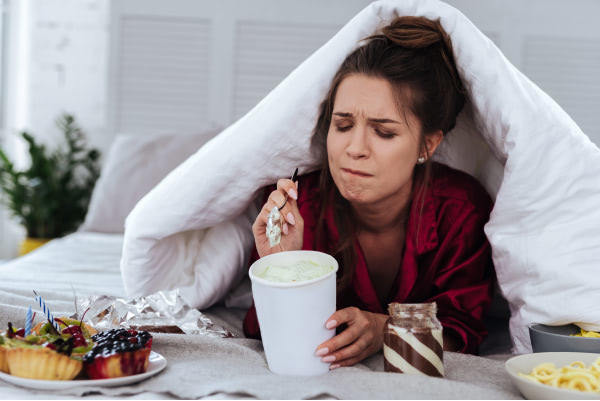
Yes, women can get colon cancer. And, more women than men do get it.
What are the symptoms of colon cancer?
The most common symptom is a change in bowel habits – more constipation or diarrhea than usual – and bloody stools. There may also be cramping with the passage of bowel movements and unexplained weight loss. Other symptoms include:
-Abdominal pain or discomfort
-Unexplained fatigue and weakness -Loss of appetite -Nausea and vomiting -Back pain; bone pain; joint pain -Rectal bleeding unrelated to menstruation, sexual intercourse, or hemorrhoids (swollen veins around the anus)
What causes colon cancer?
A small percentage of cases run in families and may be linked to specific inherited genes. Most often, though, there's no apparent cause. The risk factors include:
Age – the older you are, the higher your risk -Diet – eating a lot of red meat or processed meats may increase risk. But it's not clear whether having more frequent bowel movements can lower your chance of colon cancer -Smoking -Obesity -Physical inactivity
Can women get colon cancer?
Indeed, just like men can get it too. Colon cancer is one type of cancer that both genders are susceptible to getting during their lifetime—many people have some genetic risk factors for this illness.
How often do women get colon cancer?
About 5% of people who develop colorectal cancers are women, but the number is steadily rising. That's because Black and Asian American women are more likely to be diagnosed with colorectal cancer than White women. The reasons for differences in rates among different ethnic groups aren't exactly straightforward.
Regardless, you shouldn't ignore symptoms just because your gender or ethnicity makes it less common. Women are not immune from getting colon cancer even though most cases affect men more commonly, so doctors recommend screening starting at age 50 to detect polyps early.
When should I see a doctor about colon cancer?
If you experience any symptoms of colon cancer, see your doctor right away. You should be checked regularly starting at age 50 or 45 if you're at high risk for the disease.
What should I do if I'm diagnosed with colon cancer?
The treatment depends on how advanced the tumor is and where it is located in the colon. Surgery is often needed to remove a section of the rectum or entire rectum, significantly altering bowel habits.
After surgery, most patients recover within two to four weeks. There are also chemotherapy drugs that can help shrink tumors, although they don't always work well for all cancers. Treatments used before surgery are less effective than after the tumor is removed.
Many cancers are unique to men or individual to women. For example, prostate cancer is only found in men, and breast cancer is found in women. However, colon cancer can be found in both men and women.
So if you're wondering, "can women get colon cancer?" The answer is yes! Colon cancer affects about 5% of people who develop colorectal cancers, which can affect both genders.
The root causes of developing cancer are unclear, but certain factors contribute to the higher risk for cancer, such as age and family history. You shouldn't assume you can't get colon cancer because you're a woman – especially if you have a family history or genetic predisposition for this illness – so make sure to see your doctor if you experience any symptoms.
The treatment will vary based on the severity of your condition and where the tumor is located in the colon. Still, surgery is often required to remove a section of the rectum or entire rectum, significantly altering bowel habits.
A couple of lifestyle factors contribute to the risk of developing cancer.
Eating many red types of meat, processed meats, and not getting enough fiber can increase your risk of developing colon cancer. Being overweight or obese is also linked to the development of colorectal cancer. There isn't clear information on whether having more frequent bowel movements can lower your chance of colon cancer.
Still, doctors recommend making sure you're getting at least five servings of fruits and vegetables each day. Smoking and being physically inactive can also raise your risk for colon cancer, although there's no clear evidence just yet that physical activity affects the development of this illness.
